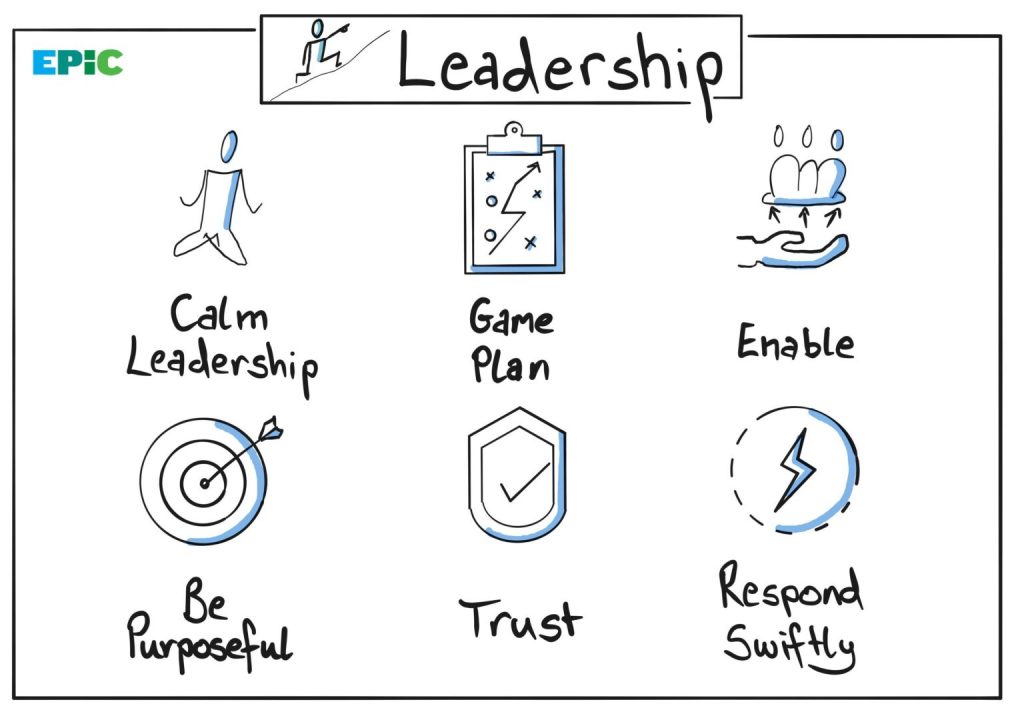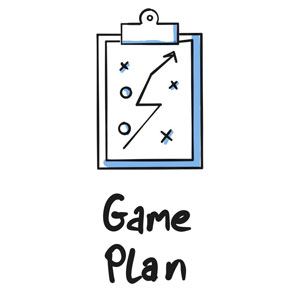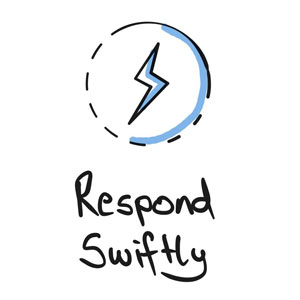 Back to Resources
Back to Resources
Leadership is taking on a whole new meaning for organisations as they rally to set up their teams to work remotely, and provide clear direction and purpose.
For leaders in organisations where remote working is embedded in how they work, their focus will tip more towards how they reprioritise, stabilise and innovate to support the business and customers at this fast-evolving time. There are however, numerous businesses currently scrambling to set up their organisation to work remotely, and are in an absolute state of fear. This is impacting their people, customers and business.
Read the other layers of the Sur-Thrival Guide:

1. Calm Leadership
As a leader, strive to centre yourself as you navigate these rough seas. Team members will look to their leaders for a rational approach, and to be an objective and calm voice in this uncertain time. With the increased responsibility that comes with being a leader in the face of a crisis, it is also important to take time for yourself. Simply going for a walk or meditating before you start your day can improve your own wellbeing.
Organisations that have invested in building leaders over managers will benefit in this time of disillusionment. It is a poignant reminder that leaders are purposeful in all aspects of their interactions and decision-making methods. This shines through in their genuine conduct and concern for people, as they prioritise the success of the organisation as a whole. This is in contrast to managers who often solely focus on controlling processes, policies or tools.
Now is the time to step it up a notch as a leader. Create space to connect with your team regularly from both a work and personal perspective. This along with actively listening with intent, and responding with empathy demonstrates positive reinforcement and reliability, and will strengthen trust and respect with your team.
Check-in with your peers, and see how they are going. If it’s not something you are already doing, set up regular times to connect, where you can share wins, ideas and concerns. Increased communication at this time could be the difference between someone feeling part of a community or feeling like they are stuck on their own little life raft in the middle of the ocean with a huge wave about to come crashing down on them.
We’re honouring our EPiC culture by continuing our weekly breakfast catch-ups virtually, and have introduced Friday afternoon drinks over video for the whole tribe to connect. This may quickly become a tradition!
2. Game Plan
As we all tentatively tiptoe through uncharted terrain, solid leaders will take charge and show positive commitment and engage their people to create a game plan. A plan that will assist in guiding them through these unique and uncertain times. It is the responsibility of a leader to have a succinct approach that is both transparent and clear, as well as easily adaptable.
Share with your people your initial thoughts and ideas, and as a group ideate on a deeper level what the plan should encompass. New facts and information are going to be continually surfacing. Give your team the opportunity to adapt their ideas and tailor the plan as often as is called for. Making sure to communicate and circulate the changes to all.
At EPiC we have a 3-stage survival strategy. Reiterating our Sur-Thrival Guide on Business Strategy, under Survival, each of these stages has 6 different components to it. We call these pressure valves. All up, that gives us 18 different pressure valves to release if things get progressively worse. Each of those valves are designed to relieve the system and enable us to continue with greater flexibility than before.
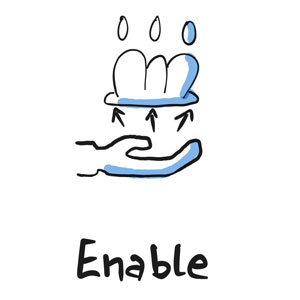
3. Enable
What do your teams need to continue to be productive, professional, and happy as they work remotely? The bottom line is, if you are losing productivity, your business is inherently losing real money. Listen with conviction, and respond to their needs constructively. This does not have to mean giving 100% or nothing. Enabling your team even just 2% at a time, will work towards maintaining a united environment where people feel supported and engaged.
It’s the leader’s job to take stock, to understand and provide the communication the team needs to feel connected, the technical support to work effectively, and the motivation to deliver on priorities. Appreciate that giving emotional support will be heightened at this time, and recognise that your team may now need to work to a different rhythm, as they merge their home and work environments. A typical structured workday is likely to go out the window, and be replaced with a far more flexible, personal arrangement.
Enabling your team is not only about making sure they have the necessary tooling and direction, it is also empowering them in this time of unequivocal uncertainty. You can do this by involving your team in setting priorities, goal creation, and supporting the owing of outcomes. When a team is empowered to take ownership, acknowledged for their strengths while feeling supported, their motivation levels, commitment to deliver, and the quality of the work ultimately rise.
4. Be Purposeful
A dynamic leader provides a consistent direction that is both clear and purposeful. In times of crisis, people need more than ever to receive a simple and coherent message. Calmly and frankly articulate any direction change that may be needed and what the expected impact is. If people are required to come together to swarm around an identified priority or issue, help to bring them together and give clear guidelines and purpose.
Building SMART goals with the team is a collaborative way to set direction. The benefit of involving the team in setting goals is a greater understanding and buy-in, along with accountability from all team members. Identifying what success means will help the team understand if they have met the purpose or need to realign.
5. Trust
A common purpose, transparency and mutual respect is vital for creating an environment that fortifies trust and ultimately thrives. In a remote working situation, setting clear expectations, being available and communicating regularly with your team will help to evoke a culture where everyone is dependable and accountable, and motivated by the work they do. A team that is given the space to plan, create and deliver, will be much more committed and inspired than a team that is feeling like every aspect of their work is being controlled by their manager. Step aside, and let your team produce results.
When setting or adjusting goals, make sure they are realistic for the times we are experiencing. Even with taking this into consideration, it would be particularly understandable in these changing times for teams not to meet goals right now. Showing empathy and kindness will demonstrate trust and compassion. Work together to create a plan for how to improve.
Celebrating the wins is a great way to recognise your people and drive motivation. Share your team wins wide, and laugh and acknowledge the small things. Why not have a go at video conference bingo!
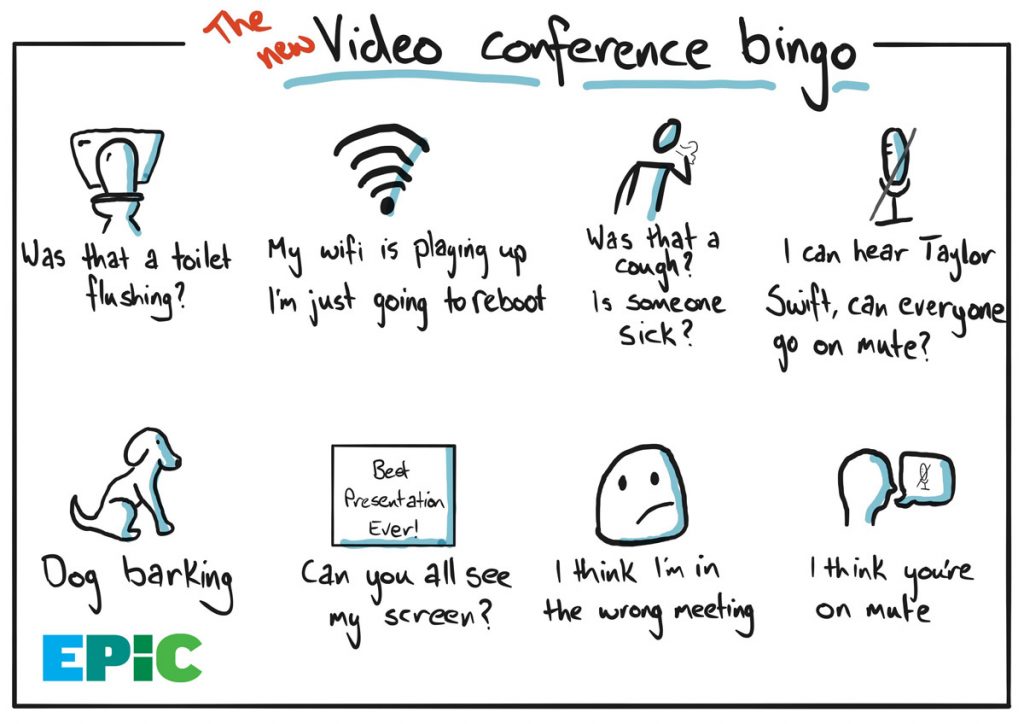
6. Respond Swiftly
Leaders are typically confident in their ability to make decisions and act rapidly to new information. In this time of ultimate flux, having a plan, being decisive and acting with deliberateness, will be pivotal in leading with integrity and courage. Take into consideration that there will be many people that are feeling vulnerable, and unsure of what is expected of them. Show humility and compassion, and be clear in all your communications. As findings and decisions are made, or priorities shift, be swift in sharing this clearly and articulately with your people.
Reach Out
We hope these 6 elements for Leadership have helped but if you would like further assistance, we’d love to help! This is what we do as Business Agility coaches and we are here to help in these situations. If you have any questions or would like help to facilitate these sessions and conversations, reach out to us here: Contact Us
